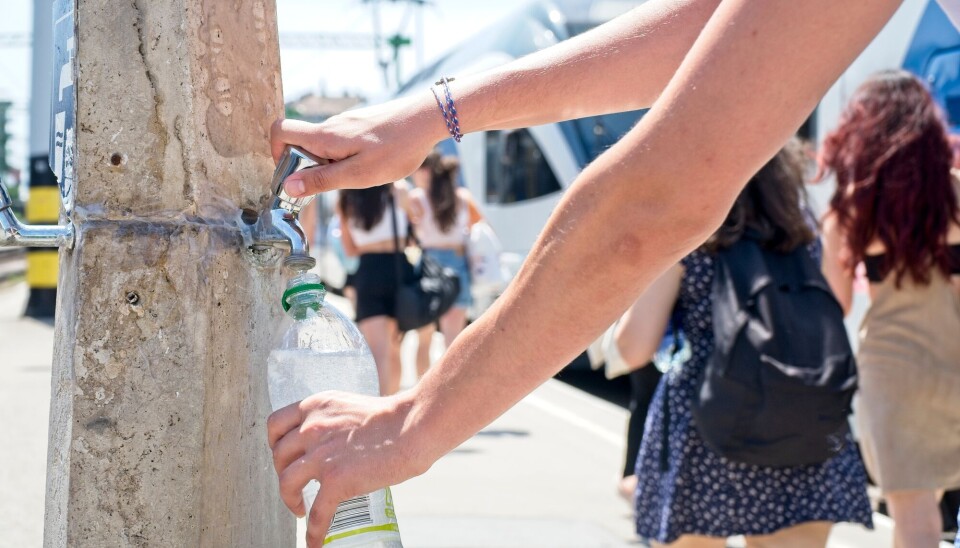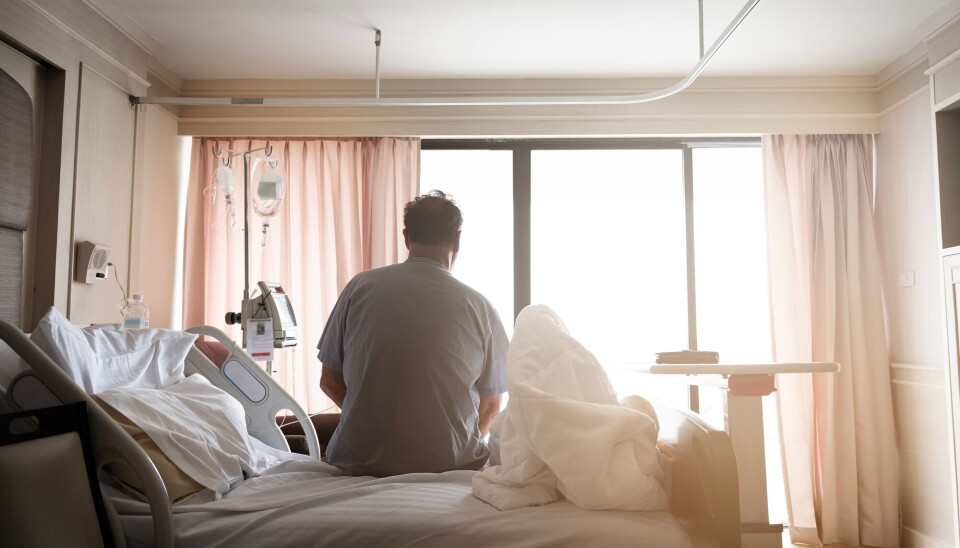This is what happens to your body during a heatwave
Europe is experiencing heatwaves more frequently. What happens to the body when it gets that hot?

As temperatures rise, the body responds: Sweat pours, the heart beats faster, and the body works hard to cool itself down.
For most people, it's fine.
But for the elderly and the sick, heatwaves can be dangerous.
In Southern Europe, temperatures have already exceeded 35 degrees this year, prompting warnings from researchers.

Heatwaves are becoming more intense
According to climate scientist Kristin Aunan, heatwaves are becoming more frequent in Europe. And they are hotter. She is the research director at CICERO Center for International Climate Research.
"When the climate gets warmer, extreme weather tends to follow. Heatwaves become more prolonged, more intense, and occur more often," she says.
Europe, in particular, is warming faster than the global average.

According to the European Environment Agency, the temperature in Europe over the past ten years has been between 2.19 and 2.26 degrees higher than it was in the 1800s.
In contrast, the global average temperature has increased by between 1.24 to 1.28 degrees during the same period.
While it’s still uncertain how climate change will affect Norway specifically, Aunan says it is unlikely we’ll see 40-degree temperatures here anytime soon.
She notes that researchers are more concerned about heavy rainfall in Norway.
The heart has to work harder
Mariann Sandsund, a senior researcher at SINTEF, has studied what happens to the body when it gets really hot.
When the body is exposed to heat, it tries to maintain a normal body temperature of around 37 degrees through several mechanisms.
"The blood vessels in the skin expand to release heat from the body," she says.
She explains that if the air temperature is lower than 37 degrees, this helps the body cool efficiently.
But during a heatwave, the air can become even hotter than the body's temperature. That means instead of cooling, the body starts to heat up.

"At that point, sweating and evaporation become the body's most important way of getting rid of excess heat," she says.
Then the heart has to work harder to deliver blood to both the internal organs and the surface of the skin. This makes our heart beat faster.
"At the same time, the body loses a lot of fluid through sweat," she says.
Most viewed
If we do not drink enough, we become dehydrated and may experience low blood pressure.
This can lead to overheating, and in severe cases, heatstroke – when body temperature rises above 40 degrees.
Heatwaves increase the risk of illness and death
For years, researchers have studied what happens in the human body during heatwaves.
Aunan says that researchers have observed an increase in deaths during very hot temperatures.
Many of these deaths are linked to cardiovascular diseases and respiratory issues.
A study conducted in Greece looked at causes of death on hot days between 2000 and 2016.
The researchers found that the risk of dying was significantly higher on extremely hot days, especially for those with respiratory conditions.
In another study from 2023, researchers estimated that over 61,000 deaths in Europe during the summer of 2022 could be linked to high temperatures.
"Even young and healthy people can be affected," says Aunan.

She explains that people may feel unwell, sleep poorly, and become dehydrated.
However, vulnerable groups are the most at risk.
This includes pregnant women, young children, the elderly, and people with dementia.
Aunan says that these individuals often struggle to regulate their body temperature, and some may not be able to take proper care of themselves when it’s hot.
Measures exist – but are they working?
Several European countries have implemented warning systems and plans for what to do during heatwaves.

Recently, over 200 schools were closed in France, and the authorities have asked businesses to adjust working hours to protect employees from the heat. In Italy, the public has been advised to stay indoors during the hottest part of the day.
But it’s uncertain whether these warnings are effective, according to Aunan.
"Warnings don't help much if people don't follow them or the systems fail to reach the most vulnerable," she says.
At the same time, she believes we all need to take responsibility for our own health and for those around us – especially when travelling to hotter regions.
If your holiday takes you south this summer, Aunan urges extra caution.
"Pay attention to how your body reacts to heat, and look out for those you're travelling with. Older family members may be much more vulnerable," she says.
She also advises checking weather forecasts, avoiding physical activity in the middle of the day, drinking plenty of water, and steering clear of alcohol and coffee.
———
Translated by Alette Bjordal Gjellesvik
Read the Norwegian version of this article on ung.forskning.no
References:
Ballester et al. Heat-related mortality in Europe during the summer of 2022, Nature Medicine, 2023. DOI: 10.1038/s41591-023-02419-z
Zafeiratou et al. Modification of heat-related effects on mortality by air pollution concentration, at small-area level, in the Attica prefecture, Greece,
Environmental Health, vol. 23, 2024. DOI: 10.1186/s12940-024-01053-7
Related content:

Subscribe to our newsletter
The latest news from Science Norway, sent twice a week and completely free.


























































